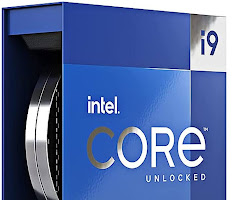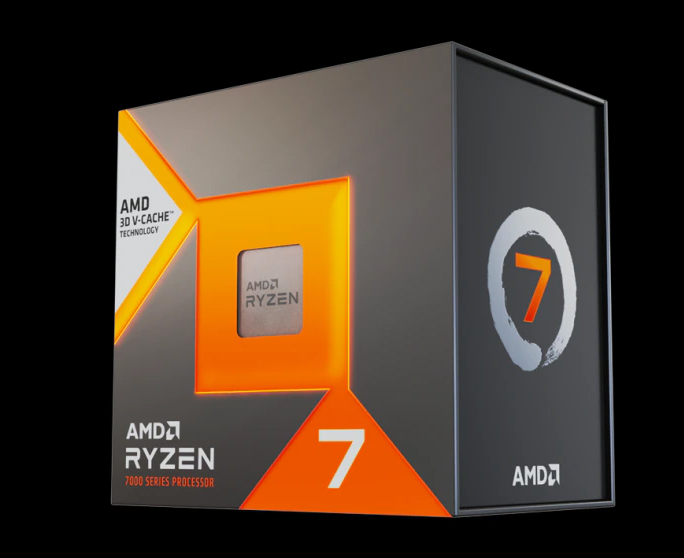

Building a Super Desktop Computer for Personal Use and Gaming
Are you looking to build a super desktop computer for personal use and gaming? If so, you've come to the right place. In this article, we'll walk you through the process of building a high-end desktop computer, from choosing the right components to assembling the system.
We'll also provide tips on how to save money on your build and how to choose the right components for your specific needs. So whether you're a beginner or an experienced builder, we've got you covered.
- The benefits of building a super desktop computer over buying a pre-built system.
- The different components you'll need to build a super desktop computer, such as the CPU, GPU, RAM, storage, and case.
- The importance of choosing the right components for your specific needs.
- Some tips on how to save money on your build.
The specific performance of the computer will depend on the specific components you choose. However, with a good set of components, this computer will be able to handle even the most demanding tasks.
- CPU: The CPU is the most important component for determining the overall performance of your computer. Choose a CPU that has enough cores and threads to handle the tasks you'll be using it for.
- GPU: The GPU is responsible for rendering graphics. If you're planning on doing any gaming or video editing, you'll need a powerful GPU.
- RAM: RAM is used to store data that the CPU is currently working on. Choose enough RAM to ensure that your computer doesn't run out of memory when you're running multiple demanding tasks at once.
- Storage: You'll need a good amount of storage for your games, software, and other files. Choose a storage solution that meets your needs and budget.
- Power Supply: The power supply is responsible for providing power to all of your components. Choose a power supply that is powerful enough to support your system and that has a good efficiency rating.
The computer with the configuration you provided will be able to perform a variety of tasks, including:
- Gaming: This computer will be able to play the latest games at high settings.
- Video editing: This computer will be able to edit videos smoothly and without any lag.
- 3D rendering: This computer will be able to render 3D models quickly and efficiently.
- Programming: This computer will be a great choice for programmers, as it will be able to handle demanding tasks such as compiling code and running simulations.
- General productivity: This computer will be a great all-around machine for general productivity tasks such as browsing the web, creating documents, and working with spreadsheets.
Specifications
- CPU: The CPU is the brain of your computer, so you'll want to get a powerful one. A good option for a high-end gaming PC is the AMD Ryzen 7 7800X3D.
- GPU: The GPU is responsible for rendering graphics, so it's also an important component for gaming. A good option for a high-end gaming PC is the NVIDIA GeForce RTX 4080 Ti.
- RAM: RAM is used to store data that the CPU is currently working on, so you'll want to get enough of it to keep your system running smoothly. A good option for a high-end gaming PC is 32GB of DDR5 RAM.
- Storage: You'll need a good amount of storage for your games, software, and other files. A good option for a high-end gaming PC is a 1TB PCIe 4.0 NVMe SSD.
- Power Supply: The power supply is responsible for providing power to all of your components, so you'll want to get one that's powerful enough to support your system. A good option for a high-end gaming PC is a 1000W power supply.
- Case: The case is the housing for all of your components, so you'll want to get one that's spacious enough to accommodate everything and that has good airflow to keep your components cool. A good option for a high-end gaming PC is the Fractal Design Meshify 2.
In addition to these components, you'll also need a monitor, keyboard, mouse, and other peripherals.
The total cost of a high-end gaming PC will vary depending on the specific components you choose, but you can expect to spend around $2,000 to $3,000.
Here are some additional tips for building a high-end gaming PC:
- Do your research and choose the best components for your needs.
- Make sure your components are compatible with each other.
- Build your PC in a clean and organized workspace.
- Follow the instructions carefully when building your PC.
- Test your PC after you've built it to make sure it's working properly.
Building a high-end gaming PC can be a daunting task, but it's also a rewarding one. With a little planning and effort, you can build a system that will let you play the latest games at the highest settings.
Best Light-weight Laptop in 2023
So many laptops on the market, it can be tough to know which one is right for you. That's why we've put together this list of the best lightweight laptops for web development and Photoshop in 2023.
We've considered factors like performance, battery life, display, and price to bring you a list of the top three laptops of our findings. So whether you're a professional or just starting out, we've got you covered.
Dell XPS 13
- CPU: Intel Core i5-12500H
- GPU: Intel Iris Xe Graphics
- RAM: 16GB LPDDR5
- Storage: 512GB PCIe SSD
- Display: 13.3" FHD+ (1920 x 1200) IPS touchscreen
- Battery life: Up to 12 hours
- Weight: 2.8 pounds
Lenovo ThinkPad X1 Carbon
- CPU: Intel Core i5-12500H
- GPU: Intel Iris Xe Graphics
- RAM: 16GB LPDDR5
- Storage: 512GB PCIe SSD
- Display: 13.3" FHD+ (1920 x 1200) IPS touchscreen
- Battery life: Up to 15 hours
- Weight: 2.5 pounds
Asus Zenbook 13
- CPU: Intel Core i5-12500H
- GPU: Intel Iris Xe Graphics
- RAM: 16GB LPDDR5
- Storage: 512GB PCIe SSD
- Display: 13.3" FHD+ (1920 x 1200) OLED touchscreen
- Battery life: Up to 13 hours
- Weight: 2.8 pounds
The main difference between these laptops is the display. The Dell XPS 13 and Lenovo ThinkPad X1 Carbon have IPS displays, while the Asus Zenbook 13 has an OLED display. IPS displays are generally considered to be more accurate, while OLED displays offer better contrast and color reproduction.
Ultimately, the best laptop for you will depend on your individual needs and preferences. If you're looking for the most accurate display, then the Dell XPS 13 or Lenovo ThinkPad X1 Carbon are good choices. If you're looking for the best color reproduction, then the Asus Zenbook 13 is a good choice.
"Building a Super Desktop Computer for Personal Use and Gaming":
Building a super desktop computer can be a daunting task, but it's also a rewarding one. In this article, we'll walk you through the process, from choosing the right components to assembling the system. We'll also provide tips on how to save money on your build and how to choose the right components for your specific needs.
Keywords: desktop computer, build, gaming, personal use, components, assembly, save money, tips, CPU, GPU, RAM, storage, case
"The Best Lightweight Laptops in 2023":
In this article, we've put together a list of the best laptops for web development and Photoshop in 2023. We've considered factors like performance, battery life, display, and price to bring you a list of the top three laptops for web development and Photoshop.
Keywords: laptops, web development, 2023, performance, battery life, display, price, top three, Dell XPS 13, Lenovo ThinkPad X1 Carbon, Asus Zenbook 13

